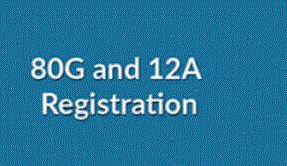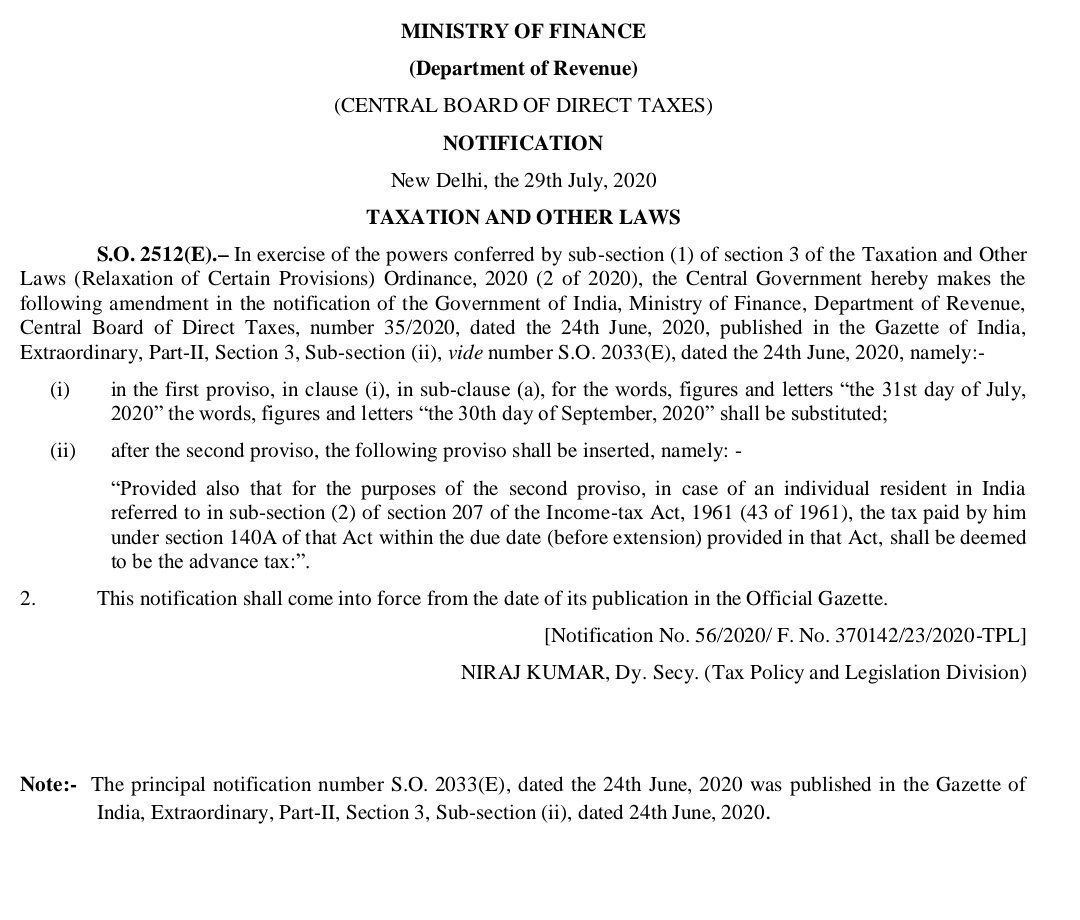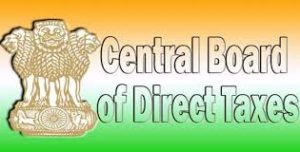
The Central Board of Direct Taxes (CBDT) on Thursday revised the ‘E-assessment Scheme, 2019’ notified on September 12, 2019. The Government notified that now, the e-Assessment scheme shall be called Faceless Assessment.
Now, the National e-Assessment Centre shall intimate the assessee for the conduct of faceless assessment in case wherein notice has been issued by AO.
The Board has also extended its scope to cover best judgment assessments.
E-Assessment was a roadway towards a paperless, faceless assessment stripping away at bureaucratic layers. E-Assessment was earlier tried and tested by the Income-tax Department, before going forth with the E-Assessment Scheme, 2019.
The Board notified that in the notification dated September 12, 2019, in the opening portion, for the word “E-assessment”, the words “Faceless Assessment” shall be substituted. The Board notified the procedure for the faceless assessment wherein the National e-Assessment Centre shall serve a notice on the assessee under sub-section (2) of section 143, specifying the issues for selection of his case for assessment.
Promoting a transparent and fair tax regime, Prime Minister Narendra Modi unveiled ‘taxpayers’ charter’, enshrining rights of assesses in a statute under the Income tax law. With the launch of ‘Transparent Taxation — Honoring the Honest’ platform, Modi also unveiled faceless appeal and expanded the scope of faceless assessment, eliminating physical interface between taxpayers and tax authority.
Step wise process for Faceless Assessment, scope extended to cover best judgement assessment:
Introduction
The Central Board of Direct Taxes (CBDT) has revised the ‘E-assessment Scheme, 2019’ notified on September 12, 2019. Now, e-assessment scheme shall be called Faceless Assessment.
The National e-Assessment Centre shall intimate the assessee for conduct of faceless assessment in case wherein notice has been issued by AO. The Board has also extended its scope to cover best judgment assessments.
What was the E-assessment Scheme, 2019?
Finance Minister Nirmala Sitharaman had announced the e-assessment scheme in her Budget speech on July 5, 2019, which was subsequently inaugurated on October 7, 2019.
This was aimed at moving to faceless scrutiny and elimination of human interface in assessment proceedings. The scheme was set to bring in a “paradigm shift” in taxation by eliminating human interface in the income tax assessment system.
The Ministry of Finance vide Central Board of Direct Taxes (CBDT) notification No 61 & 62 dated 12th September 2019 has respectively notified the E- assessment Scheme 2019 & gave directions for its implementation.
E-assessment Scheme, 2019 to be now called as “Faceless Assessment”
Step wise process for Faceless Assessment
By the Notification issued by CBDT on 13th August, 2020, “E-assessment” will be now called as “Faceless Assessment”. Faceless assessment shall be made as per the following procedure:-
Step 1 – Issue of Notice on Assessee
- National e-Assessment Centre shall serve a notice on the assessee under section 143(2), specifying the issues for selection of his case for assessment
- Assessee may, within 15 days from the date of receipt of notice, file his response to the National e-assessment Centre
Step 2 – Case to be assigned to Assessment Unit
1.National e-assessment Centre shall assign the case selected for the purposes of e-assessment to a specific assessment unit in any one Regional e-assessment Centre through an automated allocation system
2. Where a case is assigned to the assessment unit, it may make a request to the National e-assessment Centre for:-
a. obtaining such further information, documents or evidence from the assesse or any other person
b. conducting of certain enquiry or verification by verification unit
c. seeking technical assistance from the technical unit
3. Where a request for obtaining further information, documents or evidence from the assessee or any other person has been made, the National e-assessment Centre shall issue appropriate notice or requisition to the assessee or any other person for obtaining the information, documents or evidence requisitioned by the assessment unit
4. Where a request for conducting of certain enquiry or verification by the verification unit has been made, the request shall be assigned by the National e-assessment Centre to a verification unit through an automated allocation system
5. Where a request for seeking technical assistance from the technical unit has been made, the request shall be assigned by the National e-assessment Centre to a technical unit in any one Regional e-assessment Centre through an automated allocation system
6. The assessment unit shall, after taking into account all the relevant material available on the record, make in writing, a draft assessment order either accepting the returned income of the assessee or modifying the returned income of the assessee, and send a copy of such order to the National e-assessment Centre with details of the penalty proceedings to be initiated therein, if any.
Step 3 – Draft Assessment Order
1.National e-assessment Centre shall examine the draft assessment order in accordance with the risk management strategy specified by the Board, including by way of an automated examination tool, whereupon it may decide to:-
a. finalise the assessment as per the draft assessment order and serve a copy of such order and notice for initiating penalty proceedings, if any, to the assessee, alongwith the demand notice, specifying the sum payable by, or refund of any amount due to, the assessee on the basis of such assessment, or
b. provide an opportunity to the assessee, in case a modification is proposed, by serving a notice calling upon him to show cause as to why the assessment should not be completed as per the draft assessment order, or
c. assign the draft assessment order to a review unit in any one Regional e-assessment Centre, through an automated allocation system, for conducting review of such order;
2. Review unit shall conduct review of the draft assessment order, referred to it by the National e-assessment Centre whereupon it may decide to:-
a. agree with the draft assessment order and intimate the National e-assessment Centre about such agreement; or
b. suggest such modification, as it may deem fit, to the draft assessment order and send its suggestions to the National e-assessment Centre;
3. National e-assessment Centre shall, upon receiving concurrence of the review unit, follow the procedure laid down in sub point (a) or (b) of point (1), as the case may be
4. National e-assessment Centre shall, upon receiving modification suggestions from the review unit, communicate the same to the Assessment unit
5. Assessment unit shall, after considering the modifications suggested by the Review unit, send the final draft assessment order to the National e-assessment Centre
6. The National e-assessment Centre shall, upon receiving final draft assessment order, follow the procedure laid down in sub point (a) or (b) of point (1),as the case may be
7. The assessee may, in a case where show-cause notice has been served upon him, furnish his response to the National e-assessment Centre on or before the date and time specified in the notice
8. The National e-assessment Centre shall,-
a. in a case where no response to the show-cause notice is received, finalise the assessment as per the draft assessment order; or
b. in any other case, send the response received from the assessee to the assessment unit;
9. The assessment unit shall, after taking into account the response furnished by the assessee, make a revised draft assessment order and send it to the National e-assessment Centre
Step 4 – Final Order and Completion of Assessment
- The National e-assessment Centre shall, upon receiving the revised draft assessment order:-
a. in case no modification prejudicial to the interest of the assessee is proposed with reference to the draft assessment order, finalise the assessment or
b. in case a modification prejudicial to the interest of the assessee is proposed with reference to the draft assessment order, provide an opportunity to the assessee
c. the response furnished by the assessee shall be dealt with as per the procedure laid down in point 7, 8, 9 of Step 3
2. The National e-assessment Centre shall, after completion of assessment, transfer all the electronic records of the case to the Assessing Officer having jurisdiction over such case for:
a. imposition of penalty
b. collection and recovery of demand
c. rectification of mistake;
d. giving effect to appellate orders
e. submission of remand report, or any other report to be furnished, or any representation to be made, or any record to be produced before the Commissioner (Appeals), Appellate Tribunal or Courts, as the case may be
f. proposal seeking sanction for launch of prosecution and filing of complaint before the Court;
3. National e-assessment Centre may at any stage of the assessment, if considered necessary, transfer the case to the Assessing Officer having jurisdiction over such case.
Faceless assessment facility was extended to the entire country on 13th August, 2020, ending territorial jurisdiction and individual discretion, where an officer was the whole and sole to the assessee. Scrutiny will be allotted on a random basis. Assessment of a taxpayer in Delhi could well be carried by an officer sitting in Pune. It will put an end to needless litigation. Best Judgements Assessments under Section 144 will be also now covered under Faceless Assessment.
What is the meaning of Best Judgement Assessment?
The Best Judgment Assessment is a procedure under the Income Tax Act to comply with the principles of natural justice. Vide Section 144 of the Income Tax Act, 1961 the Assessing Officer is under an obligation to make an assessment of the total income or less to the best of his judgment in the following cases:
- If the person fails to file a return required under section 139(1) and he has not filed a revised return.
- If any person fails to comply with all the terms and conditions stipulated under a notice under section 142 or fails to comply with the directions requiring him to get his accounts audited in terms of section 142(2A).
- If any person, after having filed a return fails to comply with all the terms of a notice under section 143(2) requiring his presence or production of evidence and documents; or
- If the Assessing officer is not satisfied about the correctness and the completion of the accounts of the assessee if no method of accounting has been regularly employed by the assessee.
While Faceless Assessment and Taxpayers Charter came in force already, Faceless Appeal will be available from September 25, 2020. Under the Faceless Appeals system introduced by the government, appeals will be randomly allotted to any officer across the country and the identity of the officer deciding the appeal will remain unknown. The decisions will be team-based.





